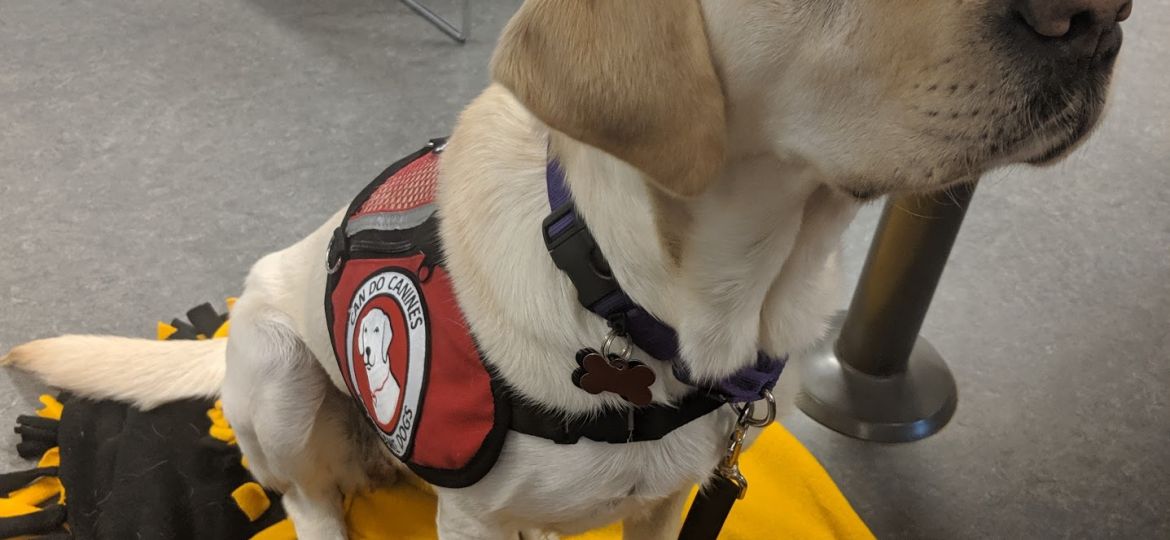
St. Olaf students might hear a bark or two more this semester due to an increase in service dog usage.
The dogs around campus are either service dogs or emotional support animals (ESAs), Annika Hansen ’21 said. Service dogs are trained to assist individuals with certain disabilities or medical conditions. ESAs, however, are not always trained in a specific action, but are intended to support students when they feel anxious or stressed. Service dogs must be certified by an outside organization.
Hansen uses a service dog, Tory, who is trained to alert Hansen when her blood sugar is rising or dropping. Tory is also trained to retrieve Hansen’s insulin or find help if she is unconscious. Tory has been on campus with Hansen since Aug. 30.
“Since she is a certified service dog, she is protected under the ADA (Americans with Disability Act), which allows service animals to go anywhere that is considered public property,” Hansen said.
Hansen emailed Associate Dean of Students for Residence Life, Pamela McDowell in regards to bringing Tory on campus. McDowell assisted Hansen in arranging housing to accommodate her needs.
Vilma Morales Rivera ’20 has had a different experience with her dog, Gordo, who is an ESA.
“An ESA supports their owner by their mere presence,” Rivera said. “They do not need to be trained and there is no such thing as a certification.”
The process to get Gordo to campus was fairly simple and straightforward, Rivera said. However, she has experienced difficulties regarding the integration of ESA’s on campus.
“ESAs are treated a lot like pets. There is some logic behind this, as ESAs are not ‘trained’,” Rivera said. “However, when the school goes as far as not letting you have your dog in a study room in your own dorm or a lounge, then it becomes a huge problem for the owner because dogs need company and owners cannot be confined to their rooms all day.”
Students started to lie about their ESAs being service dogs in order to legally bring them into public areas. This was made possible due to St. Olaf’s historically accommodating nature regarding service animals. Both Rivera and Hansen expressed frustration towards students who untruthfully register their dogs as service animals.
The recent influx of dogs is not due to any policy change.
“There was no policy change, but people are starting to realize how incredibly smart and beneficial dogs can be with certain medical conditions,” Hansen said. McDowell confirmed there has been no policy change.
Last year, there were three documented dogs on campus, whereas this year there are six dogs. If you spot a service dog on campus, Hansen reminds students that the dogs are working and to respect their space.














